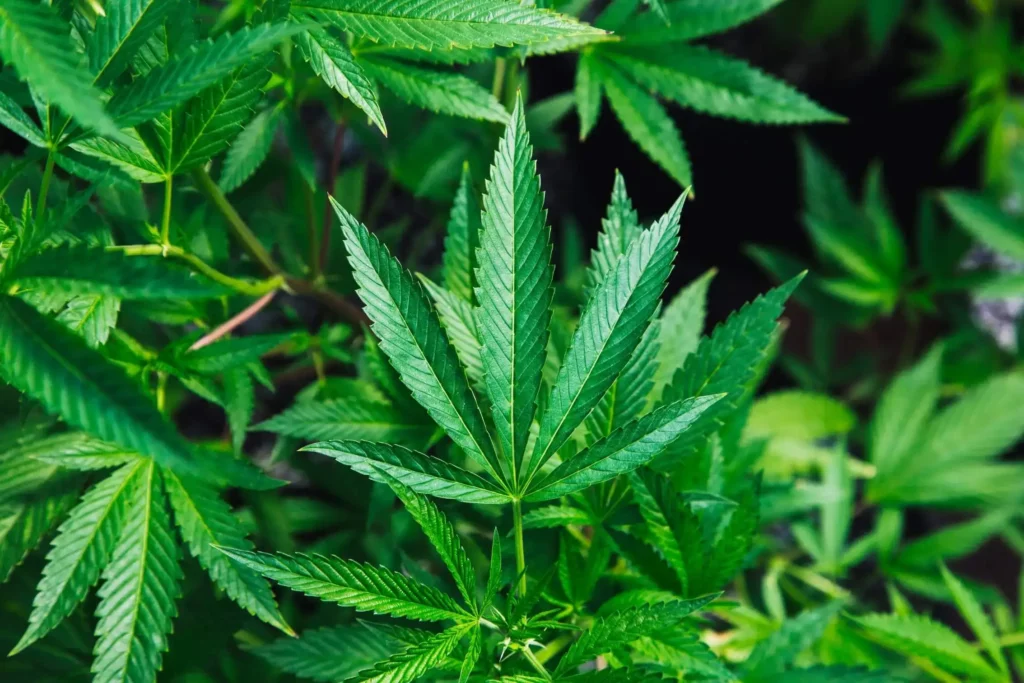
Cannabidiol, popularly known as CBD, has gained widespread popularity in recent years for its purported therapeutic benefits. Unlike tetrahydrocannabinol (THC), another prominent compound in the cannabis plant, CBD doesn’t get you high. Instead, it is believed to offer a range of potential health benefits, from pain relief to anxiety reduction.
But what is the science behind CBD, and why doesn’t it produce the intoxicating effects associated with THC? In this article, we’ll explore the fascinating world of CBD and how it interacts with our bodies.
CBD and THC are both cannabinoids found in the cannabis plant. CBD is one of over 100 different cannabinoids, while THC is the most famous and notorious. Both compounds interact with the body’s endocannabinoid system (ECS), a complex network of receptors and neurotransmitters that regulate various bodily functions, including mood, appetite, and pain perception.
However, CBD and THC have distinct effects on the body due to their different chemical structures. THC is a psychoactive compound, meaning it can alter your perception, mood, and behaviour by binding to the CB1 receptor in the brain. This is what causes the “high” associated with marijuana use. On the other hand, CBD doesn’t bind strongly to CB1 receptors and doesn’t produce the same intoxicating effects.
Although CBD doesn’t produce the same high as THC, it still has many effects on the body. CBD interacts with several receptors in the ECS, including CB1, CB2, and TRPV1. However, instead of binding directly to these receptors like THC, CBD works indirectly to modulate the activity of these receptors and other neurotransmitters.
For example, CBD has been shown to inhibit the breakdown of anandamide, an endocannabinoid that binds to CB1 receptors and is involved in pain regulation and mood. By blocking the enzyme that breaks down anandamide, CBD can increase the levels of this neurotransmitter in the body, leading to potential pain relief and improved mood.
CBD also interacts with other receptors in the body, such as serotonin and adenosine receptors, which regulate mood, sleep, and inflammation. By modulating the activity of these receptors, CBD may offer a range of potential health benefits, from reducing anxiety to improving sleep quality.
CBD has been the subject of numerous studies in recent years, and while research is still ongoing, there is growing evidence to suggest that CBD may offer a range of potential health benefits. Here are some of the most promising areas of research:
Pain relief: CBD has been shown to have analgesic properties and may help reduce chronic pain, including neuropathic pain and inflammatory pain.
Anxiety and depression: CBD for anxiety may offer a potential alternative to traditional medications. It has been shown to have anxiolytic and antidepressant effects in animal studies and small clinical trials.
Epilepsy: CBD has been approved by the FDA as a treatment for certain types of epilepsy, including Dravet syndrome and Lennox-Gastaut syndrome.
Sleep disorders: CBD for sleep may help improve sleep quality and reduce insomnia, as it has been shown to have sedative effects in some studies.
Neurological disorders: CBD may have neuroprotective effects and help reduce symptoms in conditions such as Parkinson’s disease and multiple sclerosis.
Cancer: While research is still in the early stages, some evidence suggests that CBD may have anti-cancer properties and help reduce the growth and spread of certain types of tumours.
CBD is a fascinating compound that offers a range of potential health benefits, from pain relief to anxiety reduction. Although it comes from the same plant as THC, CBD doesn’t produce the same intoxicating effects and is generally considered safe and well-tolerated. However, more research is needed to fully understand how CBD works and how it can best be used to treat various medical conditions. If you have a medical condition & you’re interested in trying CBD, speak with your doctor first to determine if it’s right for you.
If you’re looking for good CBD oils in the UK, shop at Canavape. We offer the best UK-made CBD oils and e-liquid. Whether you’re looking to manage chronic pain, reduce anxiety and stress, or improve your overall well-being, we have a wide range of products for you to choose from. Shop now and experience the potential benefits of CBD for yourself.
Please note: This blog post reflects historical data predating recent changes in cannabinoid laws, medical cannabis regulations, and some of our best CBD product names, strengths, and formulations. These historical blogs remain as a reference post our website update, but they might contain outdated information. Discover our updated CBD and legal cannabinoid products for the best CBD experience.